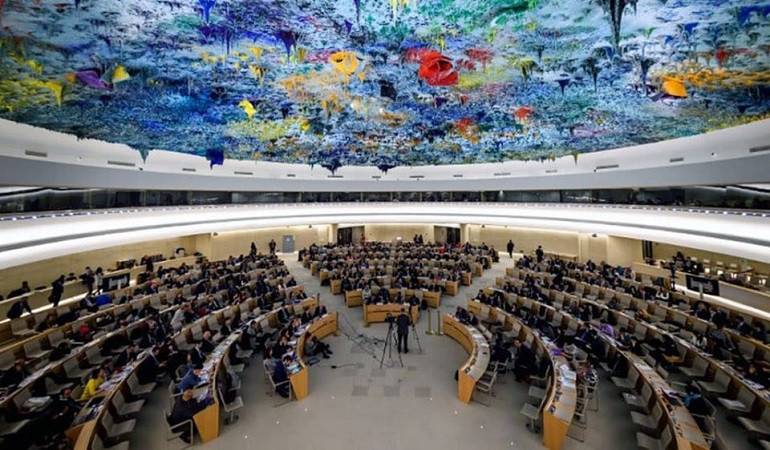Adoption of the Resolution on the Prevention of Genocide at the UN Human Rights Council
22 June, 2020On June 22, the Resolution on Prevention of Genocide initiated by Armenia was adopted by consensus at the 43rd session of the UN Human Rights Council in Geneva.
The Resolution, traditionally presented by Armenia, is based on the logic of the Convention on Prevention and Punishment of the Crime of Genocide. The Resolution reaffirms the Convention's provision that genocide has inflicted heavy casualties on humanity throughout history.
The Resolution draws the attention of the international community to the danger of the crime of genocide, as well as to the idea of excluding the recurrence of this crime in the modern world, by emphasizing the need for joint efforts of the states to eliminate this heinous crime.
The Resolution, introduced by Armenia in 2020, once again reiterates the idea that the justification or denial of genocides committed in the past could lead to new atrocities.
The updated text of the Resolution includes many new provisions. Among them, it emphasized the fact that the danger of genocide exisits in the countries with massive violations of fundamental human rights and freedoms, including targeting and persecution of ethnic, racial, national, or religious minorities. In this context, an attention was driven to such early signals of genocide as the spread of hatred by politicians towards these groups and the distortion of their true image. The importance to preserve the cultural and spiritual heritage of national, religious, and ethnic minorities and their historical monuments was highlighted.
The Resolution reaffirms that one of the key elements of genocide prevention is the teaching aout past genocides and the memorialization of victims. Accordingly, the necessity to preserve evidence and archival material related to past genocides have been emphasized.
The Resolution initiated by Armenia reflects the developments related to this issue in the modern world and is in line with the priorities set by the UN. Thus, referring to the UN Sustainable Development Goals, the document emphasizes that its fourth goal should be achieved through teaching about the genocides committed in the past.
The document presented by Armenia raises issues of global significance, including condemning the genocidal actions against women and girls and the practice of using them as a tool of genocide.
The Resolution welcomes the third Global Forum Against the Crime of Genocide initiated by Armenia, which took place in Yerevan on December 9, 2018, and was dedicated to the prevention of genocide through education, culture, and museums. It’s noteworthy that in 2015, the UN General Assembly at its 69th session adopted by consensus the Armenia-initiated resolution on declaring December 9 (the day of the adoption of the Convention) "the International Day of Remembrance and Dignity of the Victims of the Genocide and the International Day for the Prevention of Crime."
Armenia is an elected member of the UN Human Rights Council for 2020-2022, and as a member of the Council, it enlisted among its priorities the contribution to global efforts to prevent genocide and other mass atrocities by strengthening national and international mechanisms.
These steps taken by Armenia are closely linked to the recognition of the Armenian Genocide and the fight against its denial, as part of the international agenda to prevent genocides and other crimes against humanity, the main elements of which are the fight against impunity, the restoration of truth, the identification of the root causes of genocide and the establishment of early prevention mechanisms.
Currently about 60 countries co-author the Resolution on genocide prevention; it will be open for co-authorship for another two weeks.


